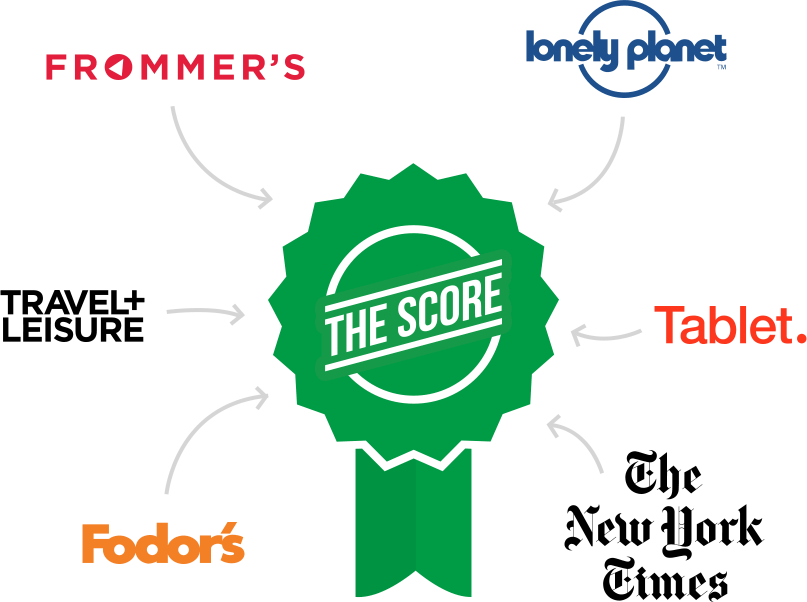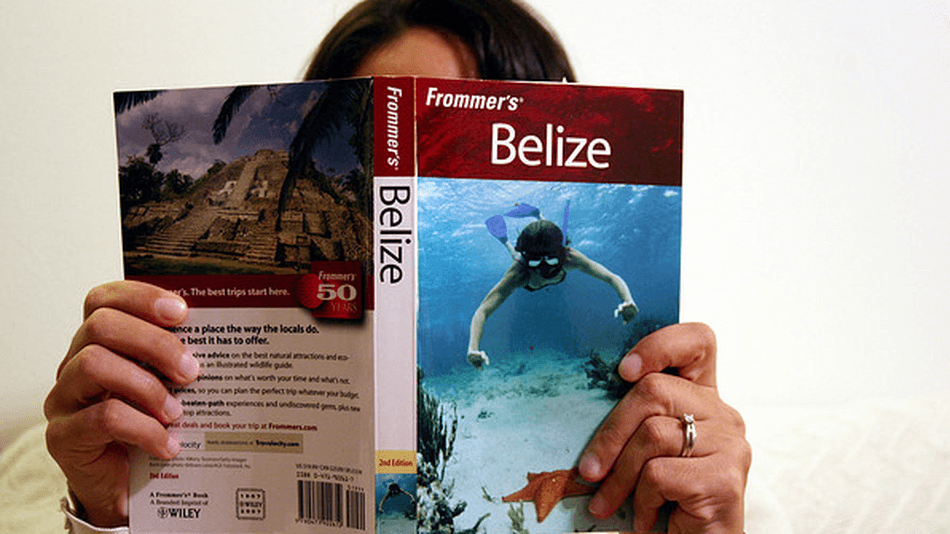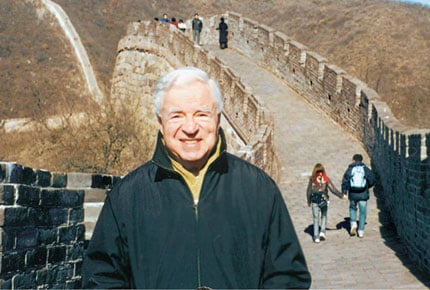There are times in life when unpredictability is a good thing. Booking a hotel is not one of them. When you take that long awaited vacation, you want the luxury hotel you’ve been dreaming of, and not an overpriced room stuck in the 1980s. When you travel for business, you want a hotel with the amenities you need in a convenient location, and not frat house with no wifi.
Until now, there has been no objective way to measure a hotel’s quality. You could reply on amateur reviews (which, if not fake, are highly subjective and unreliable) or you could dig up that one travel guide you bought in 1993 and hope the listings are still relevant.
No more.
The TripExpert Score is the first objective measure of a hotel’s quality based on reliable reviews. It allows you to find the best hotel at any price-point in thousands of destinations across the world. The TripExpert Score allows you to know what you’re going to get when you travel, and to know that it will be great.
Calculating the TripExpert Score

Simply put, the TripExpert Score takes into account how many publications have recommended a hotel, the reliability of the publications, and what they’ve said about the hotel.
But the algorithm itself is not simple; it is a complex yet elegant tool designed to help you find the best hotels. Here’s how it works.
What a publication says
When we talk about “what” a publication has said, we mean scores (e.g. “3 stars”) and rating categories (“critic’s pick”, “editor’s choice”), as well as any textual descriptions (“the best hotel in Berlin”) that appear in the body of the review and that are noted by our editors.
Some publications are weighted more than others
All of our reviews are written by professionals. However, publications are given different weights in calculating the TripExpert Score. This is not because we subjectively favor some publications over others, but because some publications provide us with stronger quality signals than others. A publication that has a numeric rating system, and that rates a very large number of hotels is especially useful. For example, the Michelin Guide and Frommer’s are given a lot of weight because they have a simple, globally applicable numeric rating system that is applied to a large number of hotels.
Some reviews are weighted more than others
Even within a particular publication, some reviews are given more weight than others. A recently published review is generally more valuable than an older review. A review is especially useful if it is for a new hotel that has only recently started to receive coverage in the media; if a couple of publications give it stellar reviews, it is probably a great hotel even if it has so far only been reviewed by a small number of publications.
Scores need to be considered in context
A hotel that has 4 stars in Frommer’s is better (according to Frommer’s) than one that has 3 stars. But how much better, and how much of an impact should this have on the hotels’ TripExpert Scores? To answer this question, our algorithm takes into account a number of factors, including:
- • Where is the hotel, and how did Frommer’s score other hotels in the same place?
- • What price category is the hotel in, and how did Frommer’s score other hotels in that price category?
- • What is the average rating in Frommer’s, globally and in the relevant destination?
Interpreting the TripExpert Score
The TripExpert Score is intended to be intuitively understandable. However, for those interested, here are some “expert” tips for interpreting it:
- • Scores range from 60-100. We describe 60-70 as recommended; 70-80 as very good; 80-90 as excellent; and 90-100 as outstanding.
- • Scores are intended mostly to provide guidance within a particular destination. A hotel that scores 90 in New York City is better, according to experts, than a hotel that scores 80.
- • Scores also provide guidance between destinations. A hotel that scores 90, regardless of where it is located, is an outstanding hotel. (For an important qualification, see “Aren’t your scores too low?”)
- • All hotels on TripExpert are recommended. A property is listed on TripExpert only if it has been endorsed by multiple experts. There are certainly some average hotels on the site, but we hope that there are no bad hotels. Or, at least, a hotel listed on TripExpert is one that experts consider to be one of the best in the area. All of the hotels in the area may be “bad”, but they’re the best bad.
FAQ
Here are some answers to questions we’re often asked about the TripExpert Score.
Why should I trust professional reviewers?
These are people who have made it their job to provide the best advice to travelers. They’ve usually lived in the place they’re writing about, and they know the neighborhoods, transit routes, and other salient information much better than almost everyone who posts a review on a user review website. They’ve stayed in or visited multiple hotels, and they know which to recommend. As Arthur Frommer — the pioneer of the modern travel guide — says in his endorsement of TripExpert, many of these are people who have “devoted their careers to the subject matter and built major reputations based on the worth of their reviews”.
Are the results better than user review sites?
Yes. Much better. We’ve written extensively about why user reviews don’t work. We also have a blog post that compares the #1 hotel on TripExpert and TripAdvisor for various destinations.
Why are some of your scores so low?
In very big cities, where there is a lot of competition among excellent hotels, average TripExpert Scores tend to be lower. We do this for a reason. There are probably at least 50 outstanding hotels in New York City, and if we gave them all a TripExpert Score of 90, the number would stop being a useful way of determining which is best. We therefore “spread” them out across a wider range. This means that some great hotels in New York have scores that are slightly lower than they would have been if they had been located in, say, Kansas City. We think that this is the correct outcome. Most people are looking to make a decision about which hotel to stay at in a particular place, and so our main goal is to provide the best experience to facilitate this decision. In addition, the wider range of scores reflects the fact that a visitor to New York has a wider range of options.
Conclusion
All this talk of algorithms may seem complicated. And, on some level, it is. There’s a reason why no one else has successfully created a comparable hotel rating system until we did it. As you can see, there’s a lot that goes into creating an objective measure of a hotel’s quality. But travel is such an important part of life. With some much money and emotional investment at stake, we believe that information is power, and we aim to give you as much power as possible to make the best decisions on where to stay. Happy travels!

